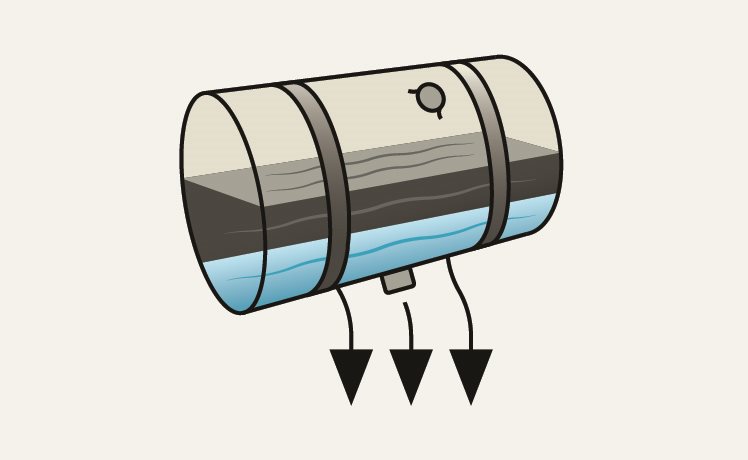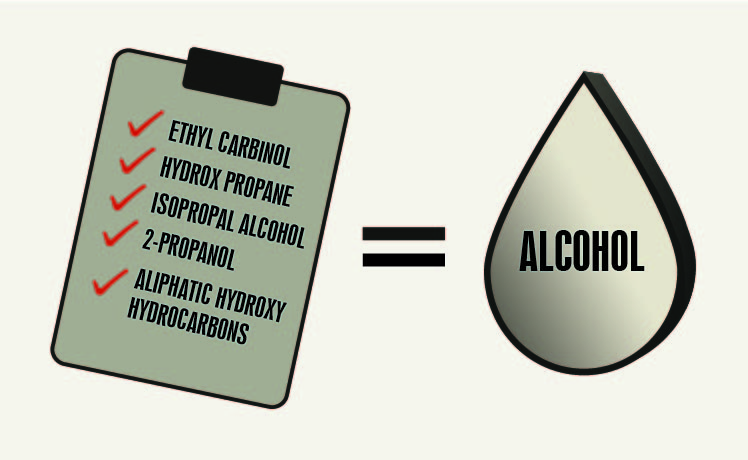
06/06/23
Heavy Duty, Light Duty, Farm, Diesel, Alcohol
By Rich Guida and Erika Howes
There seems to be a lingering question asked by diesel users; can you put alcohol in your diesel? The reality is, yes, but only if you're looking for future complications. So, do you really want to risk problems when you're looking for solutions?
Diesel fuel has several shortcomings that can often be cured with a high-quality diesel additive. Whatever the issue, the answer should never be diesel fuel additives that contain alcohol.
Alcohol is an enemy of diesel and diesel engines are not engineered to use alcohol-bearing fuel additives. Introducing alcohol into your system in any manner can be destructive and hazardous, potentially causing numerous problems.
First and foremost, alcohol has a flashpoint of around 65°F, while diesel fuel has an average flashpoint of 150°F. Mixing a product with such a low flashpoint in diesel fuel is extremely dangerous.
Engines run hotter when alcohol is present, which can potentially lead to scarred fuel injectors, melted pistons, and scuffed cylinder walls. Tanks can wind up with coating issues, sometimes requiring major structural corrections.
Alcohol has the capability to remove residue and varnish from fuel systems that have been in place for ages. Eventually, these particles will make their way into the filter or main jet, blocking the engine's access to fuel.
What's more, the alcohol itself can oxidize in the tank. This creates a sticky brown residue, one which is significantly more harmful to fuel systems than the typical varnish seen in systems that only burn pure fuel.
With almost no lubrication properties, alcohol can severely decrease the life of your fuel injection system. It can degrade plastic, rubber, or even metal parts in diesel fuel systems. Fuel lines can swell up in the presence of alcohol while gaskets and seal materials can start to break down.
"Through our continuous testing and ever-expanding experience gained over the years, we've come to learn that many alcohols serve as good 'food' for both bacteria and other various microorganisms that then produce a stubborn sludge. This sludge can cause the type of corrosion that pits tanks and leads to fuel degradation," explained Rob Howes II, President, and Chief Testing Officer at Howes.
He expands, "Not all additives are created equally. When products use alcohol to do any heavy lifting for them, it can lead directly to disaster."
With all the dangers and downfalls surrounding alcohol in engines and diesel, it can be confusing as to why products even contain it. One reason is, it is believed that products with alcohol will remove water from diesel fuel.
Most users know that water in diesel fuel is troublesome. While all diesel is susceptible to some water, it is indeed important to take measures to remove it. But alcohol, in fact, does not remove significant amounts of water. Instead, it emulsifies water, meaning mixing it into fuel.
Water on its own is corrosive to steel and can cause rust and other material breakdowns. But a mixture of water and alcohol is even harder on steel than water alone. It can be so destructive that it may even counteract corrosion inhibitors that have been used to protect the tank.
Another issue caused by water is icing. In cold temperatures, icing occurs most in the fuel filters and lines. Frozen fuel lines, as well as gelled fuel, can cause any diesel engine system to stop working. If this happens, people will often turn to an emergency diesel rescue additive.
It has long been thought that using an alcohol-based formula was the only way to de-gel fuel and de-ice frozen filters quickly. Until recently, all rescue products contained alcohol, relying on it to get the job done.
"While some of these products may work to break down the gel and get the fuel flowing again, it's how they do it that's really important," Howes added. "A product made with alcohol and harmful solvents can easily become more of a safety hazard than a quick fix."
Howes recently introduced a product that has changed the game. Howes Diesel Lifeline® is a revolutionary emergency rescue product that contains absolutely no alcohol or harmful solvents. It has been developed with unrivaled technological advancements that provide a safer and more effective alternative to alcohol for ungelling diesel fuel and melting ice.
If you do not have an alcohol-free additive, you may want to try other recovery methods. Diesel fuel will reliquefy once the temperature rises above the gel point. If you can push the vehicle into a heated garage, the problem should be solved within a few hours.
If fuel is gelled in the filter, you could try cautiously heating it with a heat gun or even a hair dryer. Changing out the filter can be a viable option as well.

There are quality additives made without harmful alcohol that can demulsify water. Demulsification is the preferred method to remove water from diesel fuel. It is the process of pushing water down and out of the fuel to be removed by the water separator.
Emulsification is the other method used to deal with water. It requires mixing water into the fuel to go forth and wreak havoc on your system. Engine manufacturers do not recommend this method.
It's important to identify the contents of the fuel additives you choose. Take a few extra minutes to check on the alcohol content of your additive before you use it or even purchase it. You will come to find the extra step is well worth the effort.
If you are researching a product before you buy it, you can check the product's Safety Data Sheet (SDS) to see its flashpoint. If the product's flashpoint is lower than diesel's 150°F, there is a good chance it contains alcohol.
Another way to check for alcohol is to look through the product's ingredients. Chemicals like Ethyl Carbinol, Hydroxy Propane, Isopropyl Alcohol, 2-Propanol, and Aliphatic Hydroxy Hydrocarbons are all just different ways to say "alcohol," and should be avoided at all costs.
Short on time? Simply look for products that clearly state "Alcohol-Free" or "Contains No Alcohol" on the label, like Howes Diesel Lifeline. As a matter of fact, all Howes additives are alcohol-free and safe to use in any diesel system.

No matter what issues you may be facing with your diesel vehicle, there are better solutions than those using alcohol. Remember, you want what you put into your fuel tank to keep your diesel running right. Howes Products offer a full line of quality additives made with absolutely no alcohol or harmful solvents. When you need top performance and peace of mind, turn to Howes.